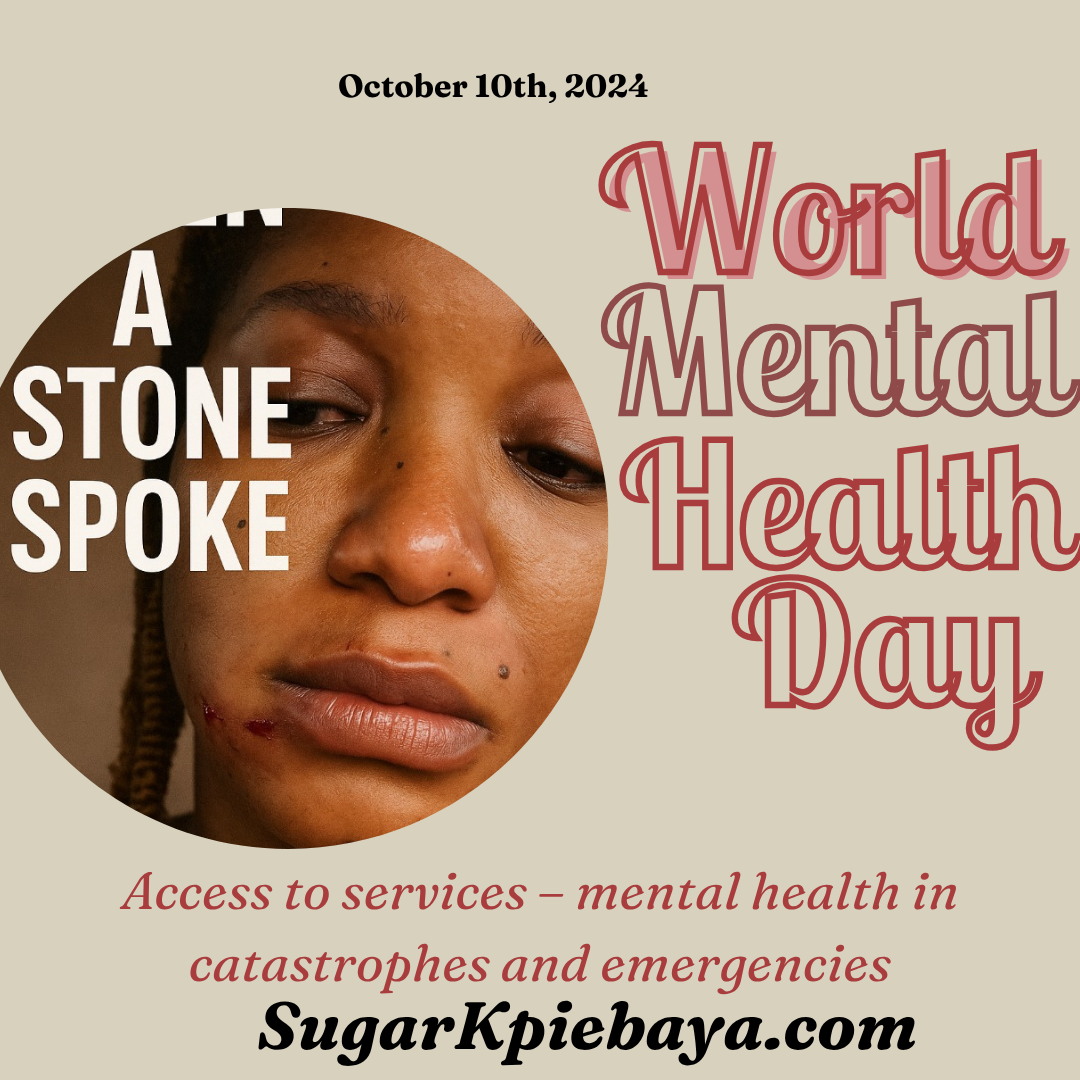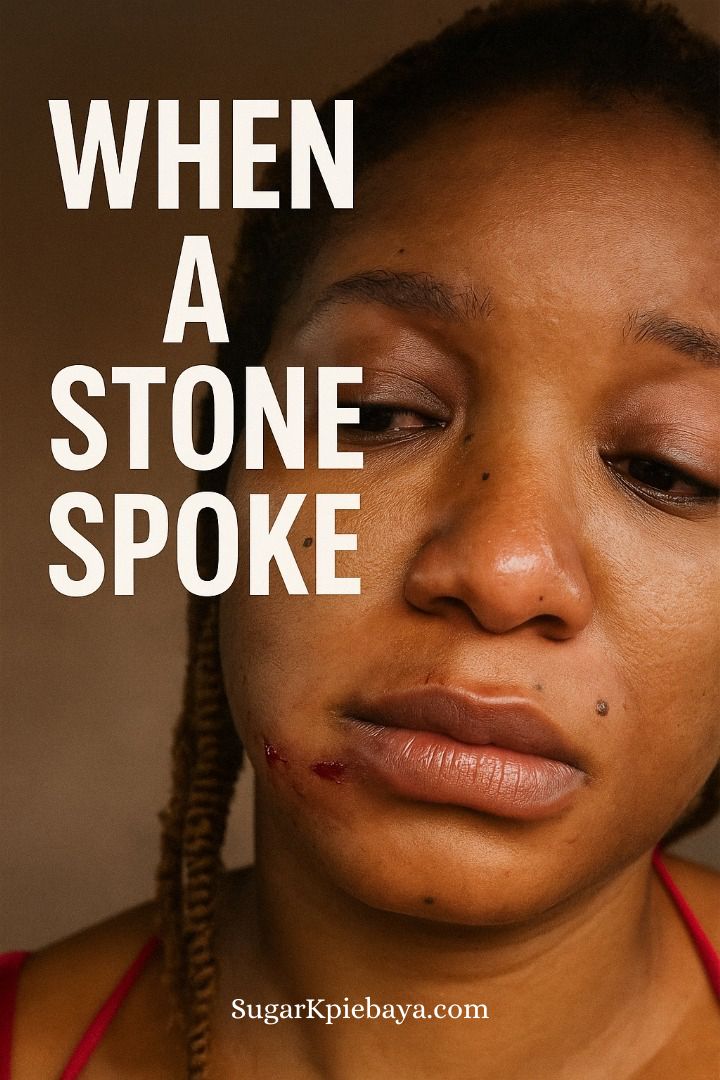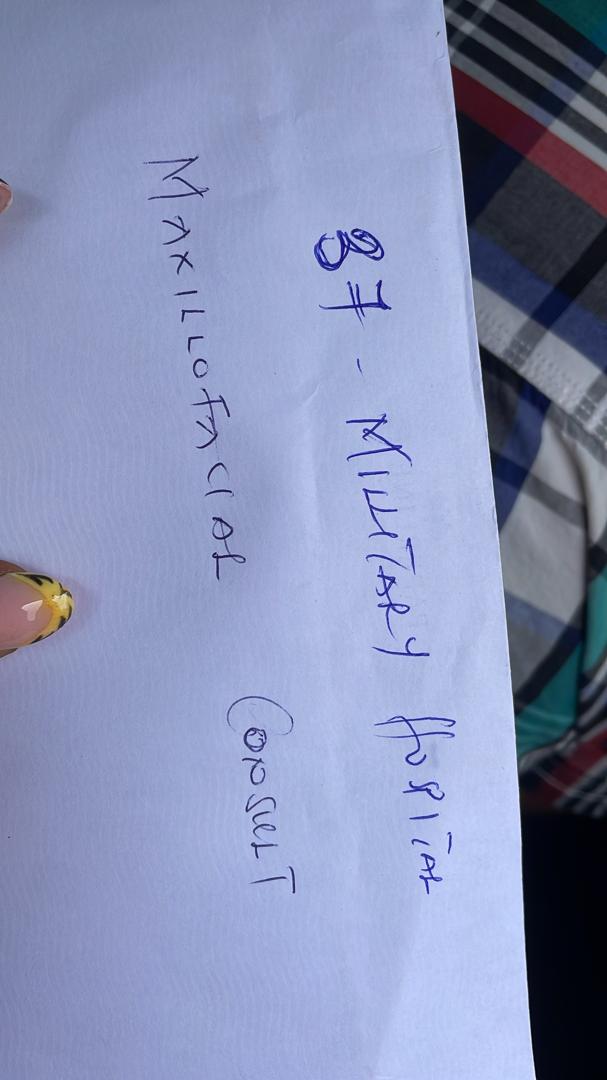
The Day a Stone Changed My Face — and My View on Mental Health

November 12, 2024, is a date that will forever be etched in my heart. It began like any other ordinary Tuesday morning. I hugged my daughter goodbye at school, whispered a quick prayer for my family’s safety, and stepped out of the house. The sun was hidden behind gray clouds, and the air was cool enough to make me quicken my steps toward the main road to catch a trotro (minibus) to work. Little did I know that before I reached the roadside, my life was about to change.
The Moment That Shook Me
Out of nowhere, a mentally challenged woman appeared on the path ahead. Before I could even process what was happening, she hurled two stones at me with a force that seemed fueled by something beyond anger. The first stone struck my left arm, sending a sharp, burning pain through my body. I was still trying to comprehend what was happening when the second stone found its target, my left cheek narrowly missing my eye. My hand instinctively flew to my face. Warmth. Wetness. Blood. If that stone had struck my eye, I wouldn’t be here writing this today. My life, as I knew it, could have taken a devastating turn in that instant.
Bleeding and in Shock
The impact was so severe that my cheek began bleeding immediately. In panic, I cried out for help. My neighbors rushed outside, their faces etched with concern. They tried to stop the bleeding, but the blood kept flowing stubbornly,

soaking the tissue pressed against my cheek. In moments like that, time feels strange—each second stretches into an hour. I decided to head back home before making my way to the clinic. The pain was intense, but even more overwhelming was the fear settling in my chest. At the clinic, the nurses looked at me with a mix of concern and urgency. They asked me to gargle water to clean my mouth. That’s when I felt it—the water was escaping through my cheek. The stone had penetrated so deeply that it had created a hole in my face.
From Ordinary Day to Emergency
The nurses acted promptly, referring me immediately to the 37 Military Hospital to see a maxillofacial specialist. My legs felt weak as I made my way there. It’s a strange sensation when your day takes a complete U-turn—from a peaceful walk to work to being in a hospital emergency ward. The specialist examined me, cleaned the wound, and stitched my cheek. The anesthesia numbed the physical pain, but nothing could dull the racing thoughts in my mind: Why me? What if it had been my eye? What if no one had been around?
The Long Year After
It’s been almost a year now, but the memory remains vivid. The scar on my face is not just external—it’s internal as well. I still panic when I see someone who appears mentally unstable. My heart races, my steps quicken, and I search for an escape route. Before this incident, I used to warn my friends to be cautious around people struggling with mental illness—not because of any personal experience, but because I knew they could act

unpredictably. Now, my warning carries the weight of lived experience. There’s an African proverb that says, “The one who has been bitten by a snake fears even the sight of a rope.” That’s me now, forever alert, sometimes even to my own discomfort.
Others Who Have Faced the Same
Recently, I came across a post by Chairman Bahass of the Bahass Foundation, a mental health care facility in the Upper West Region of Ghana. He shared that one of his patients had attacked him. Reading this deeply affected me because here is a man who has devoted his entire life to helping people living with mental health challenges, rescuing them from the streets, nursing them back to health, and reintegrating them into society, only to be harmed by one of those he is trying to save. His story reminded me of something my grandmother used to say: one who fetches water is the one who gets wet. When you dedicate yourself to helping others, you sometimes bear the heaviest costs.
Why This Story Matters
You might wonder why I’m sharing this deeply personal story. Today, 10th October, is World Mental Health Day.

The theme for World Mental Health Day 2025, “Access to Services – Mental Health in Catastrophes and Emergencies,” shines a light on the silent struggles that often follow visible disasters. Whether it’s the trauma of losing loved ones in floods, the anxiety of displacement, or the lingering fear after conflict, mental health is one of the first casualties and the last to be addressed. In times of crisis, people need more than food and shelter, they need psychological support, compassion, and community care. This year’s theme reminds us that true recovery goes beyond rebuilding homes; it’s about restoring hope, dignity, and emotional stability. Ensuring mental health services are accessible, inclusive, and integrated into emergency response is not just humane, it’s essential for building resilience and healing societies. Mental health is everywhere. It’s in our streets, our homes, our schools, our markets. And when it’s not addressed, it spills into every corner of society, sometimes in violent, unexpected ways. The woman who attacked me wasn’t evil. She was unwell. She needed care, attention, and a safe environment, things our current systems often fail to provide.
The Bigger Picture in Ghana
In Ghana, mental health often sits at the bottom of the list when it comes to public health priorities. Many people struggling with mental illness are left to wander the streets without proper treatment, becoming vulnerable and, at times, a danger to themselves and others. We have hospitals with mental health units, but they are underfunded and understaffed. We have trained mental health professionals, but they are too few for the size of the problem. We have laws and policies, but they are rarely enforced. And then, there is the stigma. In many communities, mental illness is still seen through a spiritual or superstitious lens. People say it’s witchcraft, curses, or divine punishment. That stigma prevents families from seeking medical help for their loved ones, leaving them to spiral further into illness.
Personal Safety vs. Compassion
After my incident, I struggled with two intense and conflicting emotions.
- Fear of encountering mentally unstable individuals and a strong desire to avoid such encounters.
- Compassion and understanding that they, too, are victims of a broken system.
It’s like standing at a crossroads where both paths hold equal importance. As a society, we must strike a balance between

protecting public safety and ensuring that individuals living with mental health conditions receive the care they deserve. A proverb from my homeland that says, “When the roots of a tree begin to decay, it spreads death to the branches.” If we fail to address the root cause, the lack of adequate mental health care, the consequences will continue to spread.
The Workplace Connection
You might wonder, what does this have to do with the workplace? Quite a lot, actually. Mental health profoundly affects productivity, relationships, decision-making, and creativity at work. Conditions such as stress, depression, anxiety, and burnout are mental health challenges that can derail careers and businesses. Yet, in many Ghanaian workplaces, mental health remains a taboo subject. Taking a sick day for a fever is acceptable, but requesting time off to address depression is often met with disbelief or even ridicule. It is time for workplaces to:
- Train managers to recognize the signs of mental distress.
- Offer confidential counseling services.
- Encourage open conversations about mental health without stigma.
- Support flexible working arrangements when necessary.
My Healing Journey
Physically, I have healed; the scar is now just a faint reminder. However, emotionally, I am still in the process of healing.

I have had to learn to walk forward without constantly looking over my shoulder. I have also had to confront my own fears, reminding myself that not every mentally unstable person will harm me. One thing that has helped is talking about it and sharing my story with friends, family, and now with you because silence only keeps the fear alive.
A Call to Action
My story is just one of many. Every day, countless people in Ghana and beyond are affected by untreated mental illness either personally or through experiences like mine. We cannot continue to look away. We must:
- Demand increased funding for mental health services.
- Support organizations like the Bahass Foundation, which are doing essential work on the ground.
- Educate our communities to replace stigma with understanding and empathy.
- Advocate for policies that protect the rights and well-being of individuals living with mental illness, while also ensuring public safety.

Final Thoughts
There’s a saying: when you heal one person, you heal a family; when you heal a family, you heal a community. Addressing mental health is not just about helping an individual, it’s about creating safer, stronger communities for all of us. November 12, 2024, will always remind me that life can change in an instant. But it will also remind me that physical, emotional, and societal healing is possible if we care enough to make it happen. Take your mental health seriously. Happy World Mental Health Day! Cheers!



